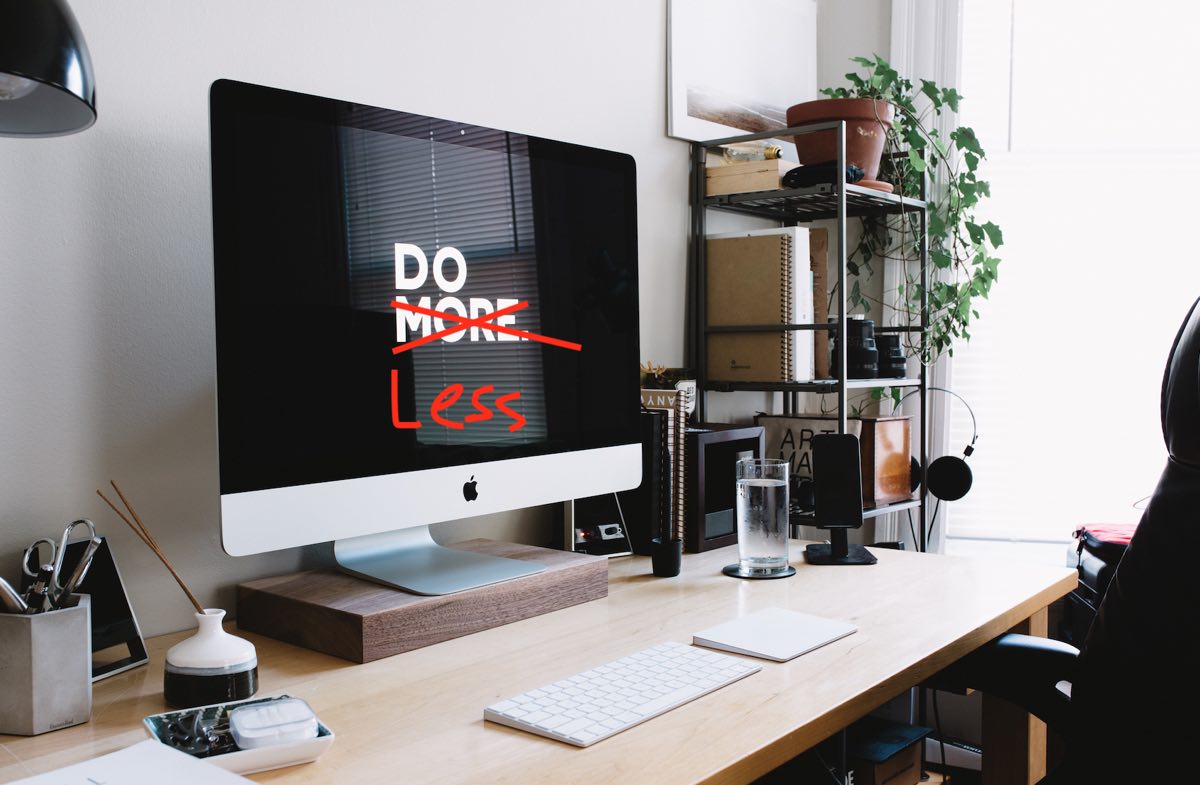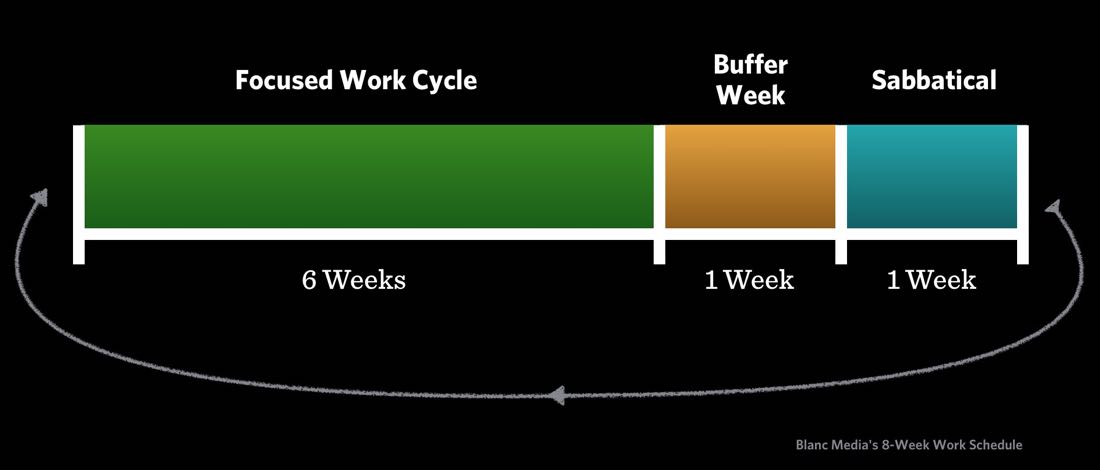How to Be More Productive (Hint: Don’t Work During Vacation)

Over the past few days, about 2,000 people have taken our new Focus Quiz to get their personal focus assessment. Of those 2,000 people, there are two results that are taking up the lion’s share, with one in particular that is most dominant.
The most common result we’re seeing is for those whose biggest opportunity for improving focus is to get more organized and in control.
(If you want, you can take the quiz here.)
For those seeking better control of their time and attention, it may be related to their schedule, tasks, or just how they are spending their time. Though, truthfully, because all of those areas overlap with one another, it’s probably a combination of sorts.
When you are not organized or in control, then oftentimes things end up slipping and getting missed. It’s frustrating. You’re spending a TON of time doing the work, but not seeing the results you think you should be seeing.
While it’s not always due to a lack of clarity, because you may know what it is that’s important to do. But in spite of that, you still struggle to find the time and energy to do the things you want to. As a result, every day is filled with what feels like far too many responsibilities with just not enough time for them all.
And so, at the end of your days and weeks, when you look back on what you did, it’s hard to tell if you actually accomplished anything meaningful and important.
Perhaps it’s because you frequently say “yes” to requests of your time and energy, even when the request is for something not important to you or even if you schedule is already full.
Or your work / home environment is such that you are spending too much time putting out other people’s fires and responding to other people’s urgent issues. Your days are filled with urgent things, but are they actually important things?
That Time I Worked During Christmas
Between June 2014 and February 2016 I took roughly 3 weeks of vacation time. (And that includes national holidays.)
To give a bit more context: that’s a 91-week timeframe of which I took just three (3!) weeks off. Ouch!
(My 2017 schedule has been WAY different. I’ll tell you why with the link at the bottom.)
For those 91 weeks, the reason I didn’t take time off is that I was so locked in on a few huge projects that I kept pushing forward. There was always one more thing. I kept thinking that if I could just get this next big project out the door then I’d be able to finally take some time off. But then there was another project, and another….
It got really bad at the end of 2015. I was in Colorado on vacation for Christmas, and yet I was working a few hours each day.
My default was to keep on working. Work always won. It was very hard for me to set boundaries even though I work for myself.
By definition, I was not in control. I did not have control of my time, and, as a result, I lacked breathing room (margin) in my life.
That sort of “always on” work schedule is not healthy for anyone. And it leads to a challenging work environment because people will feel guilty for not taking time off to rest and be with their friends and family. But then, if they DO take time off, they feel guilty for not working harder. (Ugh.)
Our New Type of Work Schedule
For the past 10 months, we’ve been experimenting with a completely different work schedule this year. And it has given me roughly 10x more time off than I took on average during the aforementioned 91-week timeframe.
Of course, our new schedule is not just about taking time off. It also has the goal of increasing productivity and focus while at work.
The schedule looks like this:

The breakdown is: 6 weeks working with a focus on one or two projects; 1 week as an “open work week” that’s used as a buffer to tie up loose ends, work on miscellaneous things, and prepare for the next cycle. And then 1 week as a vacation / sabbatical.
I had several expectations for this new work cycle. And you can read about all 4 of them at the link below. But the two I want to highlight for you now are…
-
Time away from work is critical for being more creative, focused, and productive when at work.
-
Scheduling breaks and vacations ahead of time means we are far more likely to take that time.
Don’t wait until you’re exhausted and burned out to take a break from work.
By having predictable time off, you will naturally work with more focus and motivation to get things finished. And, by allowing some breathing room in your day and your week, you will be more refreshed and more focused.
I do realize that this type of schedule isn’t possible (or even desirable) for everyone. But hopefully there are some ideas in here you can steal, adapt, and apply in some way.
Continue: “My Accidental Digital Detox” →
Links:
